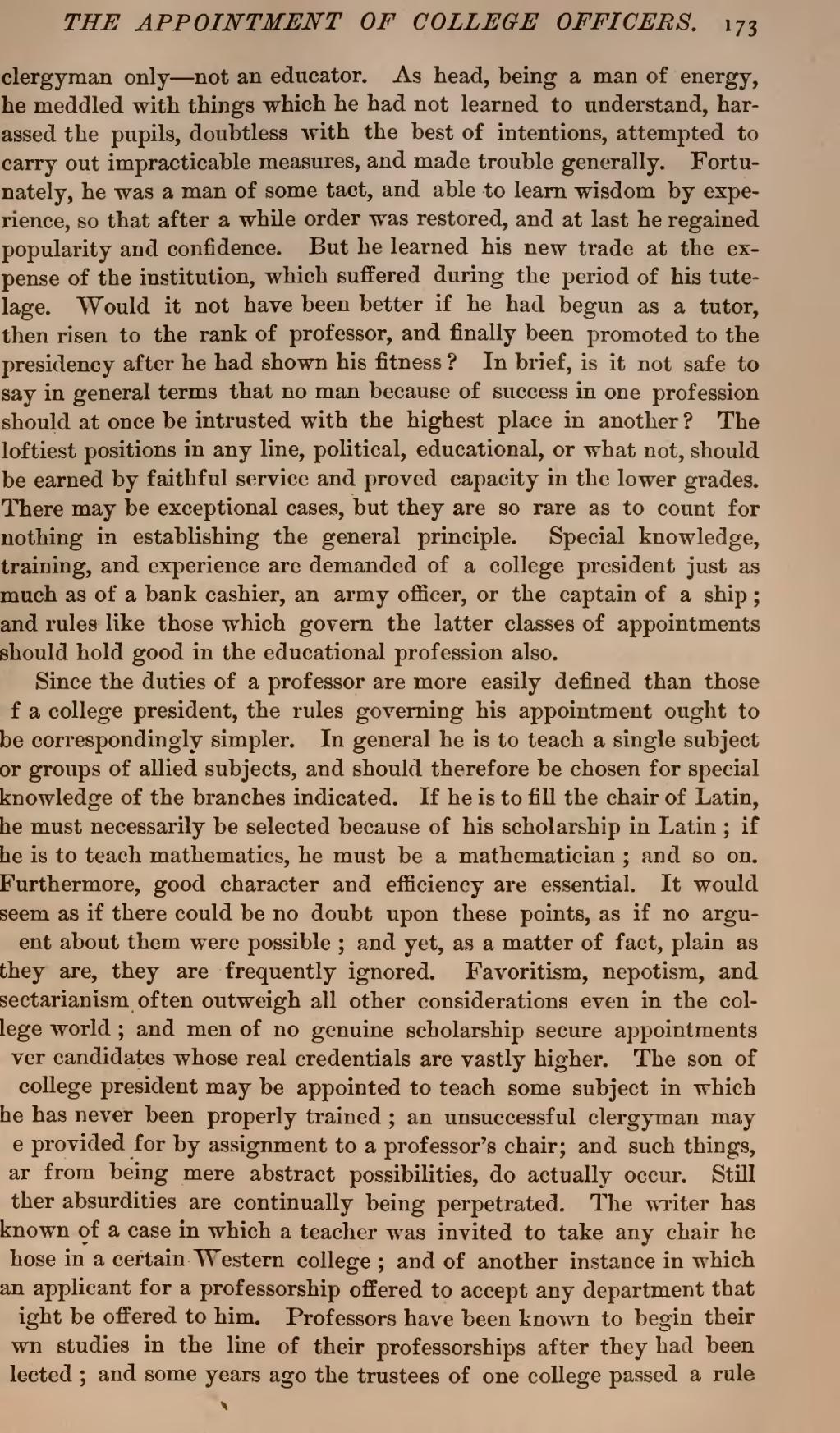clergyman only—not an educator. As head, being a man of energy, he meddled with things which he had not learned to understand, harassed the pupils, doubtless with the best of intentions, attempted to carry out impracticable measures, and made trouble generally. Fortunately, he was a man of some tact, and able to learn wisdom by experience, so that after a while order was restored, and at last he regained popularity and confidence. But he learned his new trade at the expense of the institution, which suffered during the period of his tutelage. Would it not have been better if he had begun as a tutor, then risen to the rank of professor, and finally been promoted to the presidency after he had shown his fitness? In brief, is it not safe to say in general terms that no man because of success in one profession should at once be intrusted with the highest place in another? The loftiest positions in any line, political, educational, or what not, should be earned by faithful service and proved capacity in the lower grades. There may be exceptional cases, but they are so rare as to count for nothing in establishing the general principle. Special knowledge, training, and experience are demanded of a college president just as much as of a bank cashier, an army officer, or the captain of a ship; and rules like those which govern the latter classes of appointments should hold good in the educational profession also.
Since the duties of a professor are more easily defined than those of a college president, the rules governing his appointment ought to be correspondingly simpler. In general he is to teach a single subject or groups of allied subjects, and should therefore be chosen for special knowledge of the branches indicated. If he is to fill the chair of Latin, he must necessarily be selected because of his scholarship in Latin; if he is to teach mathematics, he must be a mathematician; and so on. Furthermore, good character and efficiency are essential. It would seem as if there could be no doubt upon these points, as if no argument about them were possible; and yet, as a matter of fact, plain as they are, they are frequently ignored. Favoritism, nepotism, and sectarianism often outweigh all other considerations even in the college world; and men of no genuine scholarship secure appointments over candidates whose real credentials are vastly higher. The son of a college president may be appointed to teach some subject in which he has never been properly trained; an unsuccessful clergyman may be provided for by assignment to a professor's chair; and such things, far from being mere abstract possibilities, do actually occur. Still other absurdities are continually being perpetrated. The writer has known of a case in which a teacher was invited to take any chair he chose in a certain Western college; and of another instance in which an applicant for a professorship offered to accept any department that might be offered to him. Professors have been known to begin their own studies in the line of their professorships after they had been elected; and some years ago the trustees of one college passed a rule

